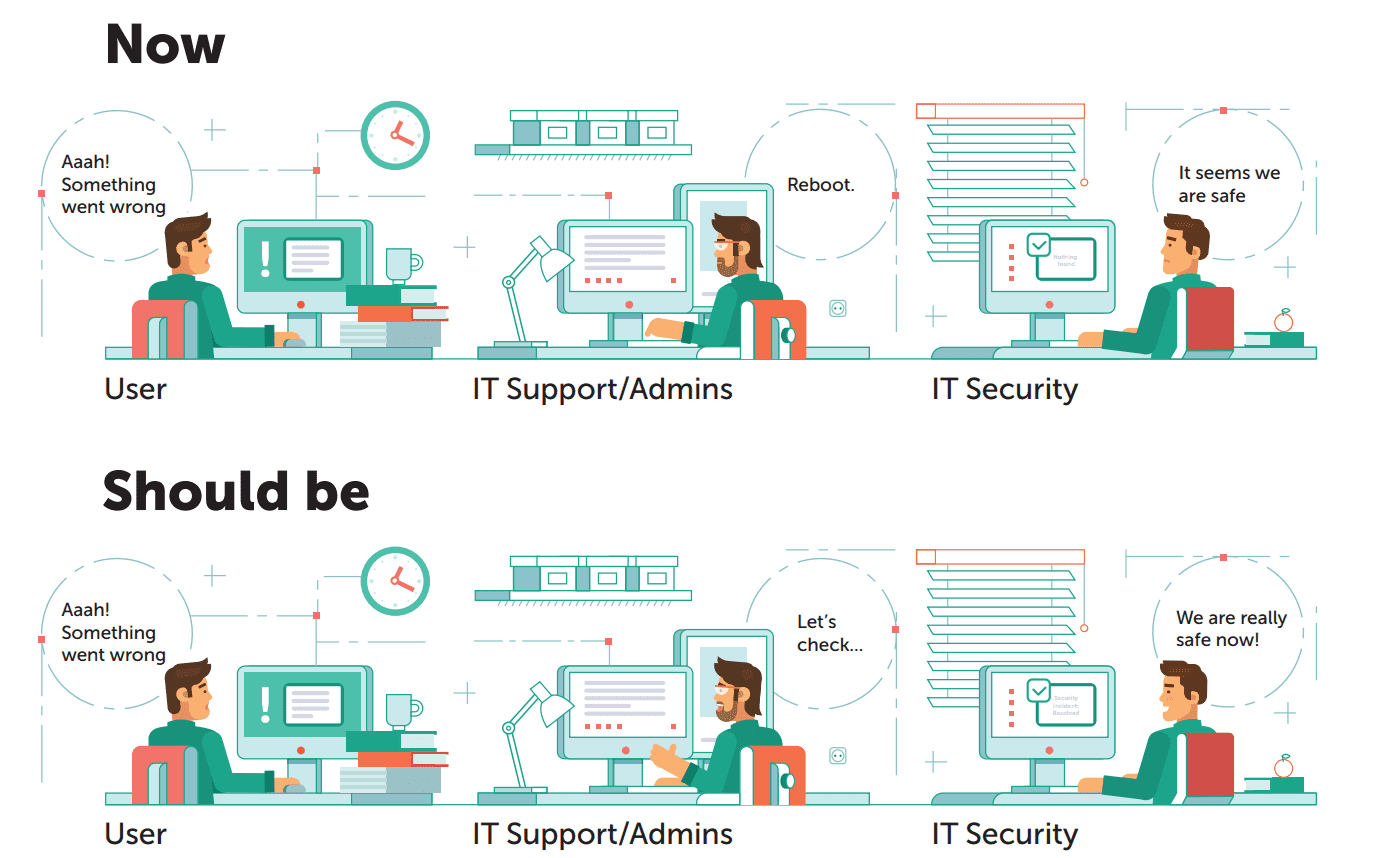46% of businesses admit that they don’t know enough about the IT security threats targeting them, and it comes of no surprise that they are concerned about becoming cyberattack victims as a result.
46% of businesses admit that they don’t know enough about the IT security threats targeting them, and it comes of no surprise that they are concerned about becoming cyberattack victims as a result. To help IT teams tackle these challenges, Kaspersky Lab has launched Cybersecurity for IT Teams Online, its new interactive training course designed to help IT teams develop their basic information security skills. The skills teams acquire during the course will help enterprise support staff increase the quality of their cyber defenses.
According to the Kaspersky Lab IT Security Economics Report, every second company is concerned about employees lacking cybersecurity awareness – something that can lead to cybersecurity incidents. One of the factors behind this disturbing statistic is the lack of basic skills in working with information security tools among IT support specialists. After all, they are the first to encounter requests from employees about problems potentially linked to cyber threats, whether it's a suspicious email or the ‘Blue Screen of Death’. To help companies strengthen their first line of IT defense, Kaspersky Lab has introduced its first online training specifically aimed at IT administrators and support staff.
Cybersecurity for IT Teams Online is a modular training course with a unique interactive program that allows IT specialists to gain practical skills in recognizing possible attack scenarios, as well as master the mechanics of collecting preliminary data about incidents in order to send them to an information security service. Cybersecurity for IT Teams Online was created in SCORM 1.2, integrated into corporate learning management systems (LMS) with Internet browser access, and includes four thematic modules:
- Malicious software
- Potentially unwanted programs and files (PuPs)
- Investigation basics
- Phishing and open source intelligence
Each module includes a small theory block and 4-10 practical exercises. The new course will help IT specialists learn how to use IT security tools such as utilities for the detailed analysis of Process Hacker/Process Explorer in the system, tools for storing the hard disk image and obtaining a memory dump (e.g., FTK Imager), a framework for reconnaissance in open sources (e.g., Recon-ng) and many others. The approach recommended by Kaspersky Lab includes the training course lasting one year, with participants spending 45-60 minutes a week on the program.
By strengthening expertise in the field of information security, IT specialists will help their companies improve their first line of defense, reduce the number of cyber incidents, learn to recognize indirect indicators of cyber threats, combat phishing as well as detect and block suspicious activity within the corporate network.

Diagram 1. Today, many IT support specialists incorrectly classify end-user requests related to IT security. Cybersecurity for IT Teams Online training is designed to change this.
"With the ever increasing complexity of cyber threats, the role of IT specialists and IT support teams is being transformed. Today, more than ever, IT support teams need skills in working with information security tools. That's why we’ve developed a simple, interesting online training course with solutions for real-life practical situations that takes no more than an hour a week,” Vyacheslav Borilin, Security Education Program Manager at Kaspersky Lab, commented on the launch of the new course. “Our goal is not only to provide IT specialists with new knowledge in the field of information security, but also to help them become more effective at combating cyberattacks, acting as the first line of defense for their company."
Cybersecurity for IT Teams Online expands the Kaspersky Security Awareness portfolio of corporate training solutions and is available for order here.
